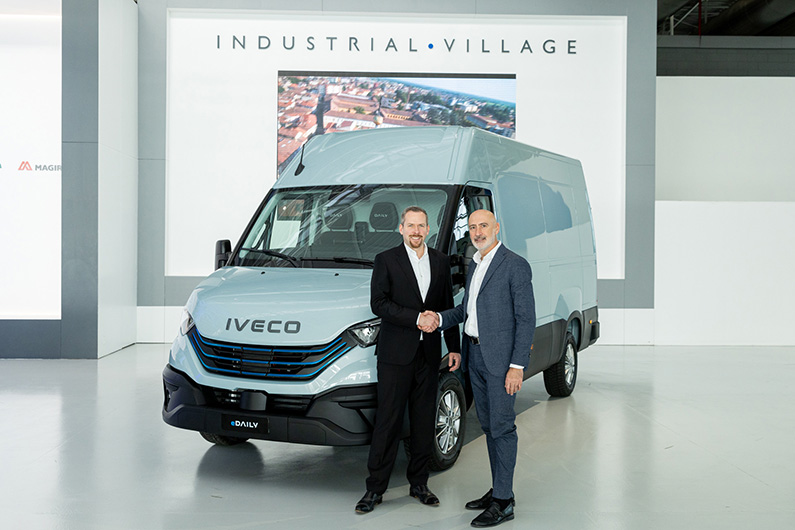More news
- New Managing Director of BASF’s Coatings division
- Global New Material International (GNMI) to acquire Merck’s Surface Solutions busine...
- Delta Coatings unveils plans for global eco-friendly HQ and plant
- PPG recognised for sustainability progress by FTSE4Good for sixth consecutive year
- ChemQuest expands Business Development team, names four VPs

Iveco Group has selected BASF, the world’s leading chemical company and biggest chemical supplier for the automotive industry, as its first partner to provide a recycling solution for the lithium-ion batteries of the Group’s electric vehicles.
This decision is part of Iveco Group’s circular economy strategy which follows the 4R Framework – Repair, Refurbish, Repurpose and Recycling – to increase the lifetime of the batteries while decreasing their overall environmental impact, and Iveco Group will ensure compliance with the Extended Producer Responsibility policy which holds producers responsible for the entire life cycle of the products they introduce on the market, from their design until end-of-life.
BASF, which has recently inaugurated Europe’s first co-located centre of battery material production and battery recycling in Schwarzheide, Germany, will organise and manage the entire recycling process for the lithium-ion batteries used on Iveco Group electric vans, buses and trucks. The agreement includes the collection, packaging, transport and recycling of batteries, in various European countries including, among others, France, Germany and the UK. After collection, BASF will mechanically process the batteries to black mass, from which critical raw materials – such as nickel, cobalt, lithium – can be extracted and recovered for use in the manufacturing of new batteries. Thus, BASF will establish the full battery recycling value chain in Europe to locally provide recycled metals with a low carbon footprint for the battery industry.
READ MORE:
Focus on automotive: Growth in electric vehicle sales drives adhesives innovation
“Life cycle thinking is one of our strategic sustainability priorities,” commented Angela Qu, Chief Supply Chain Officer, Iveco Group. “BASF shares this approach with us, and its broad battery collection network and recycling capabilities in Europe will help us close the loop from end-of-life batteries to new ones. Working together we will enable a circular economy and reduce our CO2 footprint, which is fully in line with the Group’s commitment to reach net zero carbon by 2040.”
“The partnership with Iveco Group is our first agreement to recycle batteries from electric vans, buses and trucks and an important step for our battery recycling business to expand our activities into the commercial vehicle space,” said Dr. Daniel Schönfelder, President of BASF’s Catalysts division, who is also responsible for the company’s battery materials and battery recycling business. “It will allow us to further strengthen our European collection network and make further progress in this developing market. With our recycling solutions, we aim to support the European market to close the loop and meet the ambitious circular economy-focused policy requirements of the EU Battery Regulation.”
Image caption: From left: Dr. Daniel Schönfelder, President of BASF’s Catalysts division, who is also responsible for the company’s battery materials and battery recycling business, and Francesco Donato, Head of Iveco Group Procurement







